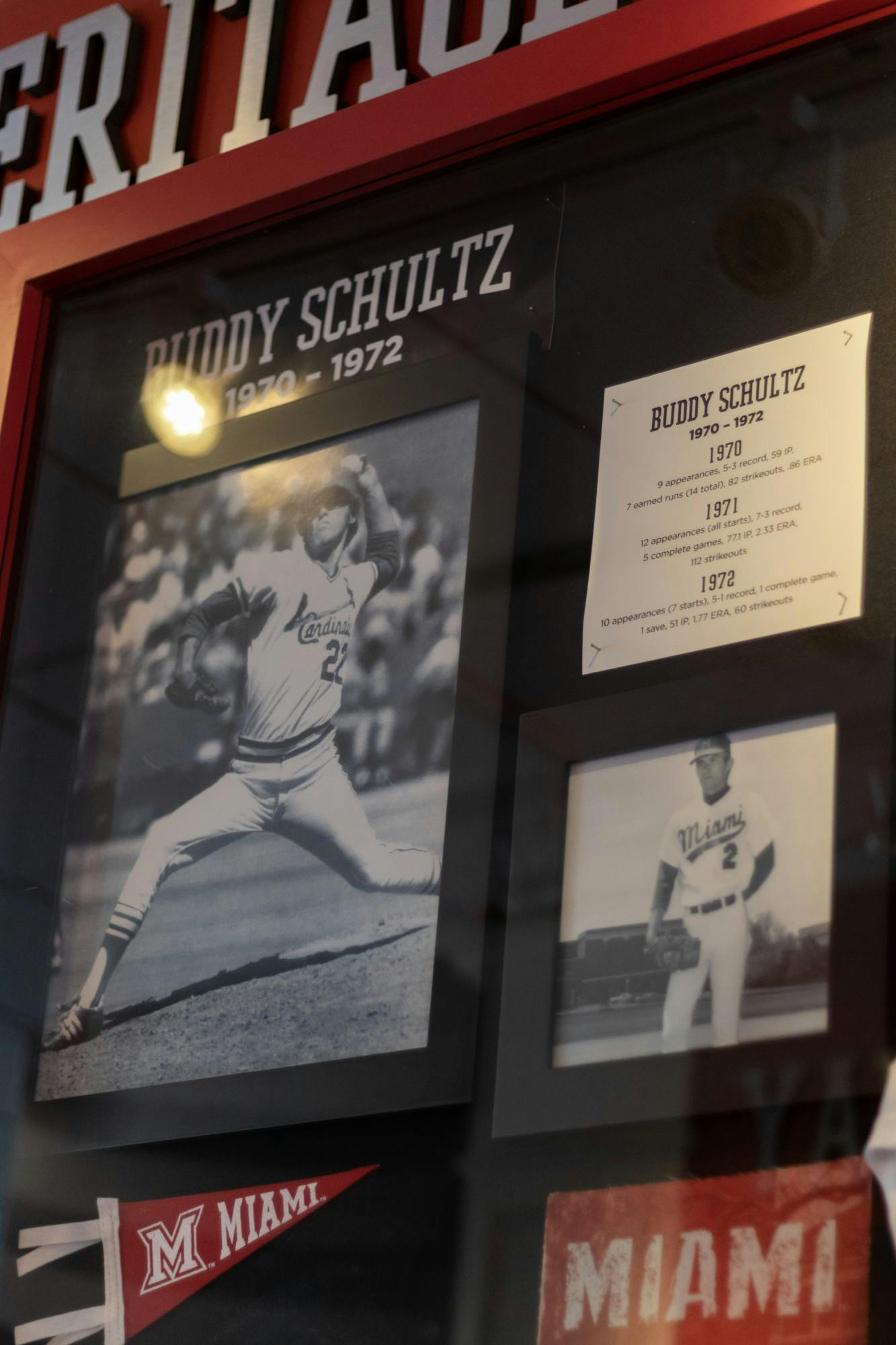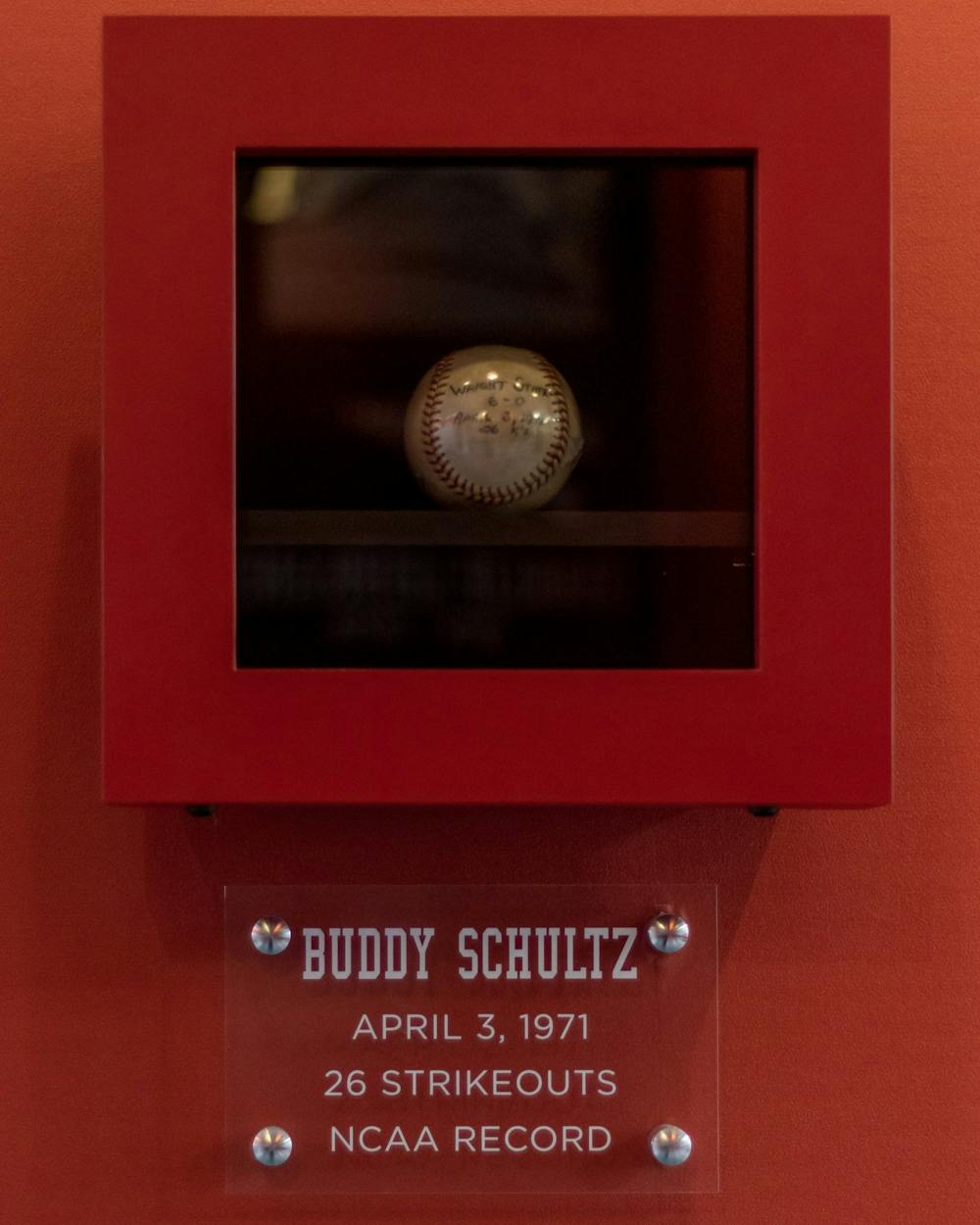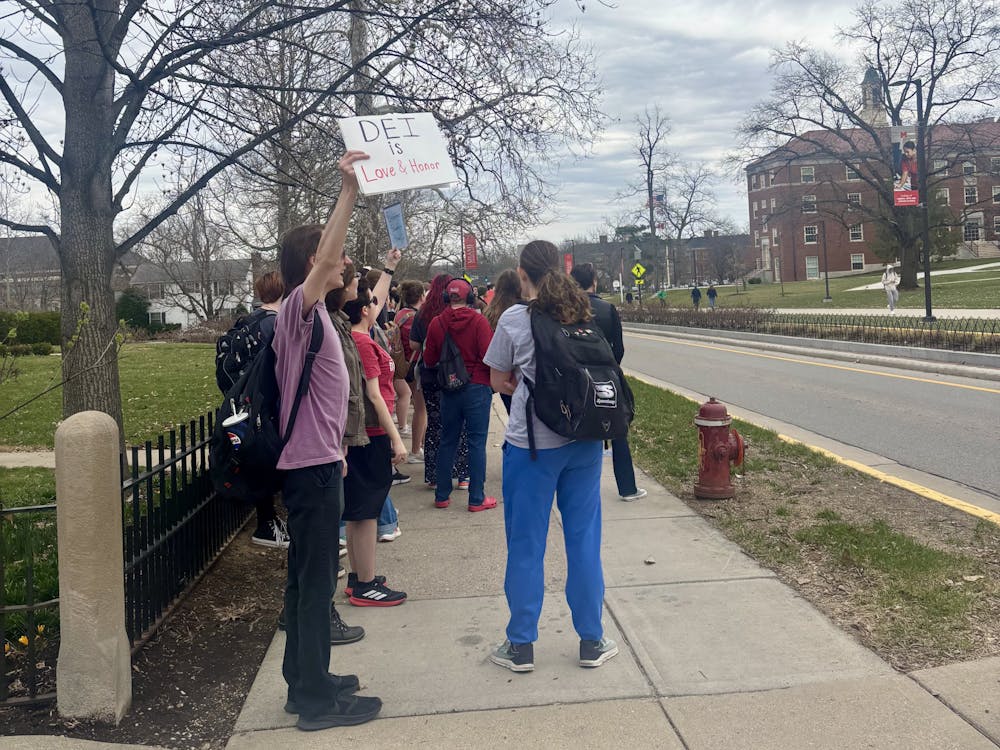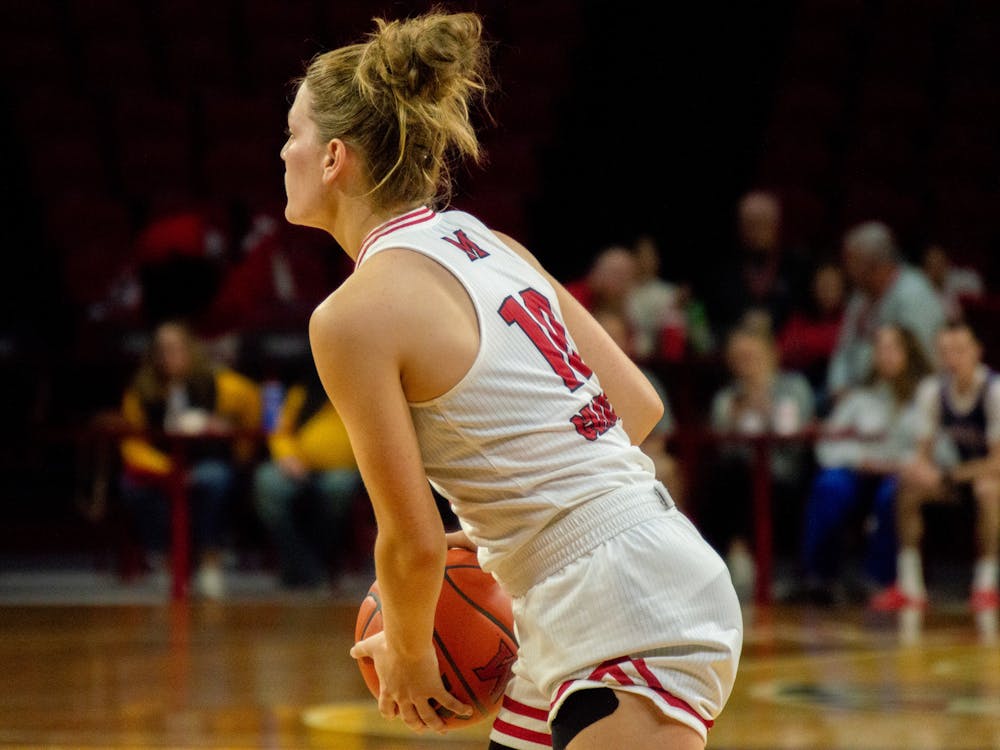With the college baseball season officially in full swing, it’s the perfect time to remember Miami University alumnus Buddy Schultz, who holds one of the most incredible records in NCAA baseball history. I’d challenge anyone to find one less likely to be broken. What he’s accomplished since his playing career ended is even better.
Schultz, from East Cleveland, Ohio, spent three seasons playing baseball at Miami. On April 3, 1971, he struck out 26 batters in a nine-inning game. For context, a baseball game has 27 outs. The batter he didn’t strike out? He bunted. Schultz fielded the bunt and threw to first. He made all 27 outs in that game.
What he’s done since may be even more impressive.
The good samaritan
Schultz estimates that he’s raised more than $30 million to help kids play baseball since his playing career ended.
In 2010, Schultz was inducted into the Greater Cleveland Sports Hall of Fame. Around the time of his induction, he got a call from the Parks and Recreation Director of the City of East Cleveland, who was calling on behalf of the Mayor, Gary Norton. Schultz and the Mayor met at a field, and the mayor asked for Schultz’s help.
“Gary Norton said ‘we haven’t played baseball in the City of East Cleveland for 24 years,’” Schultz said. “I said ‘you’re kidding.’”
Schultz raised $100,000 in three months. He and his people bought hats, shirts, jerseys, pants, socks, shoes and a glove for 127 kids and fixed up the fields.
“Around opening day, I got sent a copy of this email,” Schultz said. “It was from a mother, and this mother says … ‘I wanted you to know that because of you, my son received his first baseball glove ever. When they handed him the glove, he turned to me, and he held up both hands. Because he didn’t know what hand the glove went on.’”
The $100,000 he raised put 127 kids on the baseball field. Imagine the impact $30 million dollars made.
“At that point, $30 million became worth it for that one kid,” Schultz said. “It’s not about the volume. It’s about ‘wow, I made an impact on a kid.’ That’s really what motivates me to do more.”
Schultz’s generosity and passion for helping kids play isn’t borne by a feeling of obligation.
Enjoy what you're reading?
Signup for our newsletter
“I’m always appreciative for the talent God gave me,” Schultz said. “He gave me the ability to use it, and it’s given me everything in my life. By helping kids now, it’s like maybe I can give them a little bit of the opportunity I had.”
The record
On that fateful day in 1971, it was the fifth inning before Schultz realized what he was in the middle of doing.
“The first thing I remember was I sat down after five innings,” Schultz said. “And a guy named Pearl Barney, who lived on my floor, came up to me and said ‘Hey Buddy, do you realize you struck out everybody so far?’ And I was like ‘Really?’”
By the middle of the sixth inning, Schultz had struck out the first 16 batters.
“And the next guy hits a fly ball to right field,” Schultz said. “And Denny Smith [Miami’s right fielder] never moves. The ball bounces about five feet from him. We sit down after the sixth inning and I say ‘Denny! Is there any special reason you didn’t catch that ball?’ And he says ‘To be honest, you were striking everybody out, and I wasn’t paying any attention.’”

Buddy Schultz holds one of the most impressive records in college sports, but what he’s done since his playing career ended is even more impressive.
Schultz struck out the side in the next couple of innings, and then in the ninth, a couple of guys got on. Miami was up 6-0, but legendary former head coach Bud Middaugh still wasn’t happy.
“Middaugh came out and said ‘I don’t care how many strikeouts you’ve got, if the next guy gets on, I’m taking you out of the game,’” Schultz said. “I’m thinking to myself, ‘I’ve struck out 24. We’re winning 6-0. What’s your problem?’ But it motivated me.”
And he finished the game with 26 strikeouts, a record that will never be broken.
Things were different back then. The NCAA didn’t recognize Schultz’s record until about 25 years ago, because it didn’t know about it.
“I actually had to prove it to the NCAA,” Schultz said. “I had to send them some articles that were written about it. They had some guy with 24 as the record. I had 26. I was like ‘what are you talking about?’”
If you’re reading this, it’s a record that won’t be broken in your lifetime, unless maybe robots start playing baseball. For context, pitchers today almost never throw more than 100 pitches in a game. There are only 27 outs in a baseball game, so you can see how impressive 26 strikeouts is.
“That’s the last thing I’m worried about,” Schultz said. “Somebody breaking 26. I threw about 180 pitches that day.”
The rest
Schultz’s playing career at Miami ended in 1972 when he was drafted by the Chicago Cubs in the sixth round of the MLB June Amateur Draft. By that time, he had amassed 240 strikeouts and a career earned run average (ERA) of 1.77 at Miami.
He signed with the Cubs for $6,000, and after his first season in pro ball used that money to finish his Miami degree. Schultz had to wait until 2010 to be inducted into the Miami Athletics Hall of Fame because the university didn’t realize he had graduated.
“I got a call in 2008 from Denny Smith [the right fielder] who was a player at Miami,” Schultz said. “He was telling me the names of all these baseball players who were in the Miami Athletics Hall of Fame. I said ‘Denny, how come I’m not in this damn Hall of Fame? I’m better than all these guys.’”
Schultz and his massive network of contacts quickly got that issue sorted out.
He’s made a huge impact fundraising for the Miami Athletic Department too. When the Jay Hayden Baseball Center was being constructed, a donor who had pledged more than $1 million to pay for the turf field pulled out at the last minute. Schultz spearheaded an initiative to raise the money and did it. More than $1 million in less than three months from 12 different donors.
Around that time, when Bud Middaugh was elected to the Miami Cradle of Coaches association, one of the donors in attendance requested a seat at Schultz’s table.
“The Miami people were like ‘oh, you can’t ask him for money,’” Schultz said. “‘He’s already done this over here.’ So he sat down, and afterwards, I went to [former Miami Deputy athletic director Jude Killy] and said, ‘well he’s gonna give us $100,000 towards the turf.”
Schultz had a good big league career. From 1975-1979, he pitched 240 innings with a 3.68 ERA. In 1977 he had a 2.32 ERA and went 6-1 with the St. Louis Cardinals. He had a good big league career. Not 26 strikeouts good.
But $30 million? Countless kids put in baseball gear and on the baseball field? Given a chance to play a game that has given so much to so many? I’d say that’s 26 strikeouts good, at least.
“I believe at some point, after I’m dead and gone, I’m going to stand before God,” Schultz said. “And he’s going to say ‘what did you do with that 95 mile-per-hour fastball I gave you?’ My reply is going to be ‘I helped a lot of kids.’ I hope he likes that. Because I really think that I have.”




